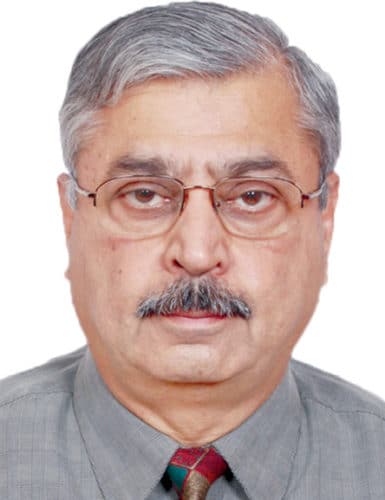We must adapt the culture of smaller companies working on major projects, believes Rajendra Bahl, professor at Centre of Applied Research in Electronics, IIT-Delhi. He is also director of Delsig Systems Pvt Ltd, a startup working on signal processing. Pragati Agarwal, academia.electronicsforu.com, interacts with him about his startup and the vast area of signal processing.

Q. Please throw some light on India’s technology industry.
A. In India, we are good at providing services than offering high-tech devices and solutions. This is because, we, as a country, are yet to create a high-tech culture.
We are one of the largest importers of defence equipment and weapons despite active operation of organisations like DRDO. We still do not make high-end products, except some missile technologies.
Q. Why do you think we are behind in providing high-tech solutions?
A. High-tech solutions require advanced hardware along with a huge investment. Although, we can design the systems, to make these commercially available, we need adequately-supporting ESDM industries.
Most instruments in our labs are imported. I remember the time when we had indigenous oscilloscopes, but now even those have to be imported.
Q. What can be done to improve the situation?
A. Everyone involved in the technical field can contribute. We can start with our education system. As academicians, we should promote the culture of taking projects to the field, to create products for the real world.
The culture of smaller companies working on big projects must be promoted. A small company can become big only if it gets to work on major projects.
A loose collaboration between smaller companies will also help improve the situation. This will allow both to complement each other’s expertise and offer complete solutions.
Q. Tell us about your startup.
A. I, along with Prof. Arun Kumar and Sandeep Kumar (alumni of IIT-Kanpur), set up the company in 2010 to address highly-specialised signal-processing requirements. We provide signal-processing solutions for radar, sonar, speech quality improvement, passive surveillance system and more. Our main domain is underwater threat detection systems.
Currently, we are working on a project for the protection of Ganges dolphins. We are creating an underwater dolphin presence map so that when the Ganges becomes the new national waterway, it will not adversely affect the dolphins that live in it. Dolphins use bio-sonar for navigation. Our system is based on the detection of these bio-sonar clicks.
Solutions we provide include system design, software/hardware prototyping, and system realisation on DSP- and/or FPGA-based hardware platforms for real-time functionalities. We also offer training on advanced signal-processing tools to be implemented in real time, along with training on statistical signal processing, underwater communications and more.
Q. How is your company contributing towards electronics’ advancement?
A. Our’s is a very niche area. We provide algorithms that will make systems more suitable for underwater detection.
We have also developed specialised proprietary know-how/IP, and offer high-end specialised services in combat management systems, multi-platform multi-sensor data fusion engines, data science and decision support systems, passive surveillance systems for mines, sonar imaging, etc. We are working on a system that will be able to tell Indian submarines and ships apart from enemy submarines using sonar.
Q. What are the application areas for signal processing?
A. Signal processing is very vast. Where there are signals, there can be signal processing. It has a lot to do with extracting information from sensors such as gyroscopes, accelerometers and magnetometers. It is used in building virtual reality applications. We can electronically null out environmental disturbances in microphones using signal processing.
Q. How do you manage to work for your startup along with a full-time job?
A. At IIT-Delhi, we can dedicate one day in a week to our consulting projects, but not at the cost of our academic responsibility. Our director, Sandeep Kumar is responsible for the business side of things.
Q. Is there anything you would like to tell our readers?
A. Academicians should contribute to the nation’s progress directly through projects that can work in real-life situations. We should also take part in projects for social good.





